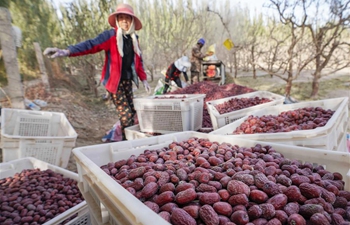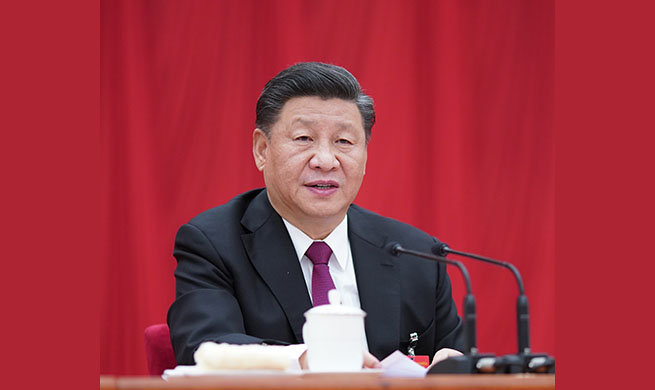by Pankaj Yadav
NEW DELHI, Nov. 1 (Xinhua) -- A latest report released by the United Nations children's fund UNICEF has revealed that as many as 80 percent of school kids in India suffer from "hidden hunger," a form of under-nutrition.
The report said that less than 10 percent of boys and girls in this age consume fruits and eggs daily, and blamed fried foods, junk-foods, sweets and carbonated drinks consumed by kids in the age group of 10-19 in India for an increased risk of diabetes and heart disease among youngsters.
"Growing incomes and increased spending on food has translated to greater consumption of fried foods, junk-foods, sweets and aerated drinks. Today, 10 to 19-year-olds in every Indian state face an increased risk of diabetes and heart disease," said the report.
"Hidden hunger" is a deficiency of one or more micronutrients such as iron, folate, zinc, vitamin A, vitamin B12 and vitamin D.
The UNICEF report assumes significance in the wake of the Indian government's recently launched ambitious nutrition campaign "Poshan Abhiyaan" aimed at improving the nutritional outcomes for children, adolescents, pregnant women, and lactating mothers by leveraging technology.
Launched by Prime Minister Narendra Modi on March 8 last year, the Nutrition Campaign aims at reducing instances of malnutrition and stunting in children by the year 2022. The month of September was decided as the "Nutrition Month" when a special campaign would be run by the government in tandem with other ministries to create awareness about proper nutritional levels among kids and women.
However, a recent study conducted by the Indian Council of Medical Research (ICMR) estimated that many Indian states were running behind and may not be able to achieve the target.
The UNICEF report "Adolescents, Diets and Nutrition: Growing Well in a Changing World" is based on the recently released Comprehensive National Nutrition Survey (CNNS).
Launching the report at the India government's ace think-tank NITI Aayog on Thursday, UNICEF Executive Director Henrietta Fore called on India to translate the data contained in the report into action on ground. "From UNICEF perspective, we urge three key interventions in adolescents - Diets, Behaviors and Services that can break this cycle of poor nutrition," she said.
The report said, "Fruits and eggs are consumed daily by less than 10 percent of boys and girls. Over 25 percent of adolescents reported no consumption of green leafy vegetables even once a week." It also observed that milk products are consumed by 50 percent of adolescents daily.
The report found that adolescent girls especially suffer multiple nutritional deprivations. "More girls suffer from shortness than boys. Anemia affects 40 percent of adolescent girls, compared to 18 percent of boys, and worsens as they get older," the report said.
The report also suggested that the free midday meals served in government schools across India should contain more foods items that are rich in nutrition.
"It means moving from a cereal-based midday meal in schools to meals that are more nutrient dense. Secondly, we must work with academia to tap into the growing expertise in nutrition, diets and agriculture," said UNICEF Executive Director Fore.
NITI Aayog Vice-Chairman Rajiv Kumar said behavioral change was very crucial for dealing with malnutrition, adding that his organization was closely working with converging ministries through "Poshan Abhiyan" to tackle malnutrition.













